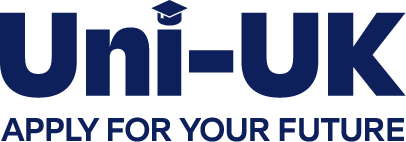5 Must-Have Guidance Counselor Resources for Effective Counseling

Key Takeaways
- Digital libraries reduce prep time, letting you focus on meaningful student interactions.
- Evidence-based worksheets translate complex therapeutic strategies into classroom-friendly formats.
- Scholarship matching tools boost application rates and track award data for transparent reporting.
- Creative SEL resources encourage participation from reluctant speakers and younger learners.
- Regular audits and data tracking turn resource use into measurable programme improvements.
Guidance counsellors juggle academic planning, career exploration, and student wellbeing daily. Access to carefully curated guidance counselor resources lets you focus on meaningful conversations rather than piecing together worksheets or searching for lesson plans. With budgets stretched and schedules packed, free guidance counselor resources that combine evidence-based strategies with engaging formats give you an extra edge. This guide highlights essential options and shows you how to weave them into practice for measurable results.
Understanding the Role of Guidance Counselor Resources

Guidance counsellor resources provide structured materials, such as growth-mindset worksheets, scholarship databases, and SEL activities, that streamline preparation and free you to spend more time in one-to-one sessions. High-quality content supports national counselling competencies, keeps programming current with mental-health research, and aligns with provincial curriculum standards. When these tools are easy to access and update, you can quickly tailor lessons to student interests while reinforcing core skills like problem-solving, resilience, and informed decision making. Ultimately, the right mix of digital libraries, printable handouts, and data-tracking templates helps you demonstrate program impact to administrators and families.
“Access to carefully curated guidance counselor resources lets you focus on meaningful conversations rather than piecing together worksheets.”
5 Must-Have Guidance Counselor Resources for Effective Counseling

1. Confident Counselors’ Free Resource Library
Confident Counselors offers an extensive repository of ready-to-use classroom guidance lessons, small-group curricula, and parent handouts. Each template follows clear objectives, estimated time frames, and step-by-step instructions, so you can slot an activity into tomorrow’s timetable with minimal prep.
These materials reinforce social-emotional learning themes—such as self-regulation and friendship skills—using colourful visuals that resonate across grade levels. You also gain access to seasonal toolkits that keep programming fresh throughout the school year. Consistent use lets you build a cohesive framework where students practise skills repeatedly, leading to noticeable improvements in peer relationships and classroom behaviour.
2. Therapist Aid

Therapist Aid distils evidence-based therapeutic techniques into printable worksheets and interactive activities. The site covers cognitive-behavioural strategies, mindfulness, and trauma-informed practices, complete with clear facilitator notes.
Many downloads come in youth-friendly formats—think comics or fill-in-the-blank exercises—making complex concepts approachable. Integrating these tools into individual sessions supports targeted goal setting, while group modules foster peer discussion. Over time, data gathered from completed worksheets can underpin progress reports that highlight skill mastery to parents and administrators.
3. Counselor Chelsey’s Free Resources
Counselor Chelsey curates engaging lesson plans that blend social-emotional learning with creative arts. Her “Feelings Check-In” slides, for instance, pair vivid emoticons with reflection prompts, helping students articulate emotions more precisely.
Each download includes a facilitator guide outlining learning targets and extension ideas, so you can adapt sessions for varied grade levels. The approachable format encourages students who hesitate to speak up in traditional discussions. Schools adopting these materials often report higher participation in wellness initiatives and fewer self-referrals for unresolved conflicts.
4. Going Merry’s Counselor Resource Hub

Going Merry streamlines scholarship searches with a secure portal that matches students to funding opportunities in minutes. The hub supplies video tutorials, step-by-step financial-aid checklists, and printable “office hour” posters that drive application traffic.
Real-time dashboards let you track submission status across cohorts, identify students who may need extra encouragement, and quantify award totals for programme reports. Counsellors using Going Merry typically see increased uptake of local bursaries and a stronger culture of forward-planning around tuition costs.
5. The Pathway 2 Success
The Pathway 2 Success specialises in executive-function and SEL resources developed by a former special-education teacher. Lessons focus on study routines, goal tracking, and emotional regulation, using gamified challenges that appeal to diverse learning styles.
Downloadable progress charts help students visualise growth, while facilitator scripts offer probing questions to deepen reflection. Embedding these exercises into advisory periods nurtures transferable skills that boost academic resilience and life readiness.
“Real-time dashboards let you track submission status across cohorts, identify students who may need extra encouragement, and quantify award totals for programme reports.”
Maximizing the Impact of Guidance Counselor Resources

Well-chosen guidance counselor resources only reach full potential when woven into a structured delivery plan. Start by auditing existing materials to identify gaps in academic, career, and mental-health coverage. Align new content with provincial curriculum expectations so each grade receives age-appropriate lessons that build year over year.
- Set measurable goals: Define outcomes, such as reduced absenteeism or improved Grade 12 scholarship totals—before launching a resource.
- Integrate data-tracking tools: Use digital forms or spreadsheets to record participation and progress; this evidence supports funding bids.
- Collaborate with classroom teachers: Co-facilitated sessions embed counselling objectives within subject lessons, reinforcing skills across contexts.
- Schedule regular reviews: Update lesson banks each term to reflect evolving student interests and emerging research.
Follow-up surveys and focus groups reveal how students apply new strategies outside guidance sessions. Sharing success stories with families builds trust and underscores the value of proactive counselling support.
Effective counselling hinges on quick access to credible, student-centred materials. The five free guidance counselor resources above equip you with adaptable lessons, scholarship tools, and data-driven progress trackers that elevate programme quality. Consistent implementation not only enriches student wellbeing but also showcases measurable gains that resonate with school leadership.
University applications are more than just paperwork—they’re the key to unlocking your academic future. At
Uni-UK, we simplify the process, providing expert support at every step to help you secure your ideal
university placement.
FAQs
How do guidance counselor resources improve student engagement?
Interactive worksheets, scholarship dashboards, and gamified SEL activities increase participation by matching content to students’ interests and learning styles, making sessions more relevant and memorable.
Where can I find free guidance counselor resources that align with provincial standards?
Websites such as Confident Counselors and Counselor Chelsey offer Canadian-friendly content, while Therapist Aid provides evidence-based materials adaptable to local curriculum requirements.
What metrics show the impact of using guidance counselor resources?
Track changes in attendance, disciplinary referrals, scholarship dollars earned, and student self-assessment scores to demonstrate tangible programme outcomes.
Can digital resource hubs protect student privacy?
Platforms like Going Merry employ encryption and consent features to safeguard personal data, allowing counsellors to share funding information without risking confidentiality.
How often should guidance counsellors refresh their resource library?
Updating materials at least once per term keeps content current with mental-health research, post-secondary admission trends, and evolving labour-market forecasts.
Blog






